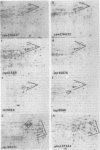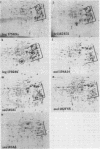Abstract
Fifty-seven strains of various Rhizobium species were analyzed by two-dimensional gel electrophoresis. Since the protein pattern on such gels is a reflection of the genetic background of the tested strains, similarities in pattern allowed us to estimate the relatedness between these strains. All group II rhizobia (slow growing) were closely related and were very distinct from group I rhizobia (fast growing). Rhizobium meliloti strains formed a distinct group. The collection of R. leguminosarum and R. trifolii strains together formed another distinct group. Although there were some similarities within the R. phaseoli, sesbania rhizobia, and lotus rhizobia, the members within these seemed much more diverse than the members of the above groups. The technique also is useful to determine whether two unknown strains are identical.
Full text
PDF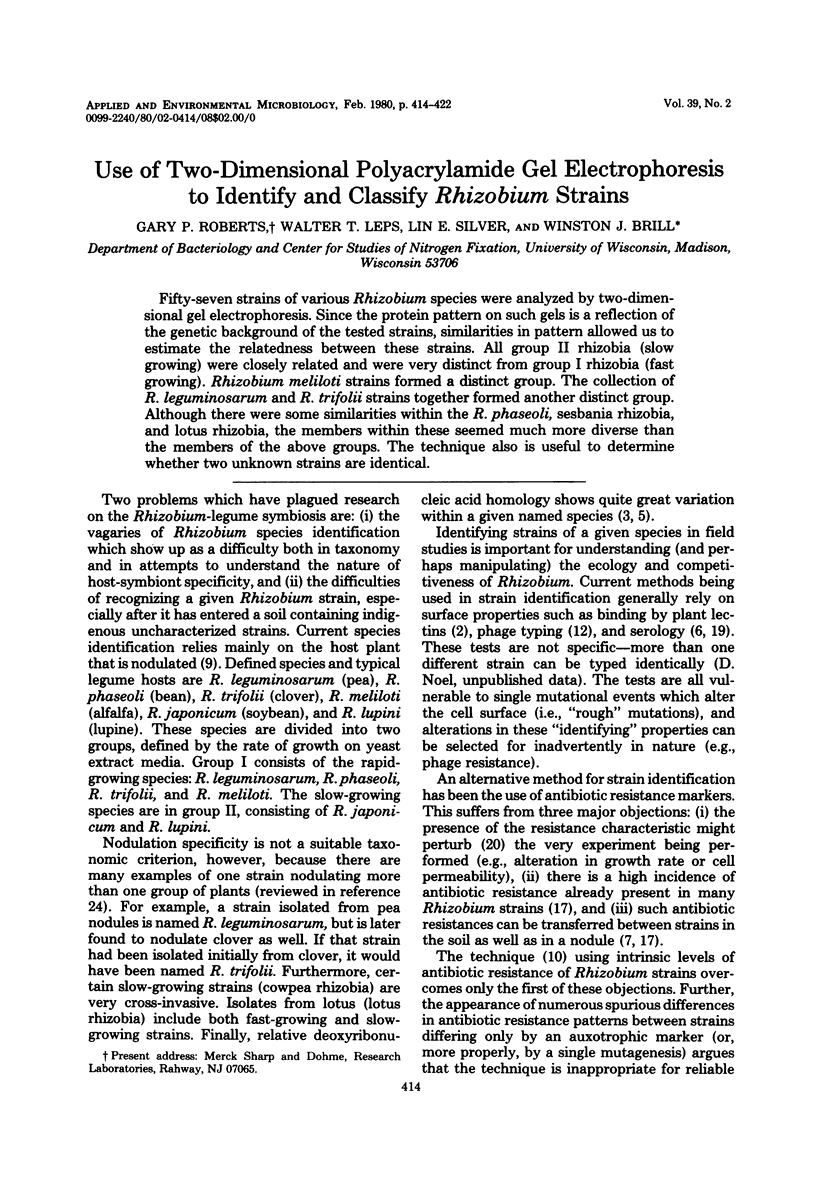
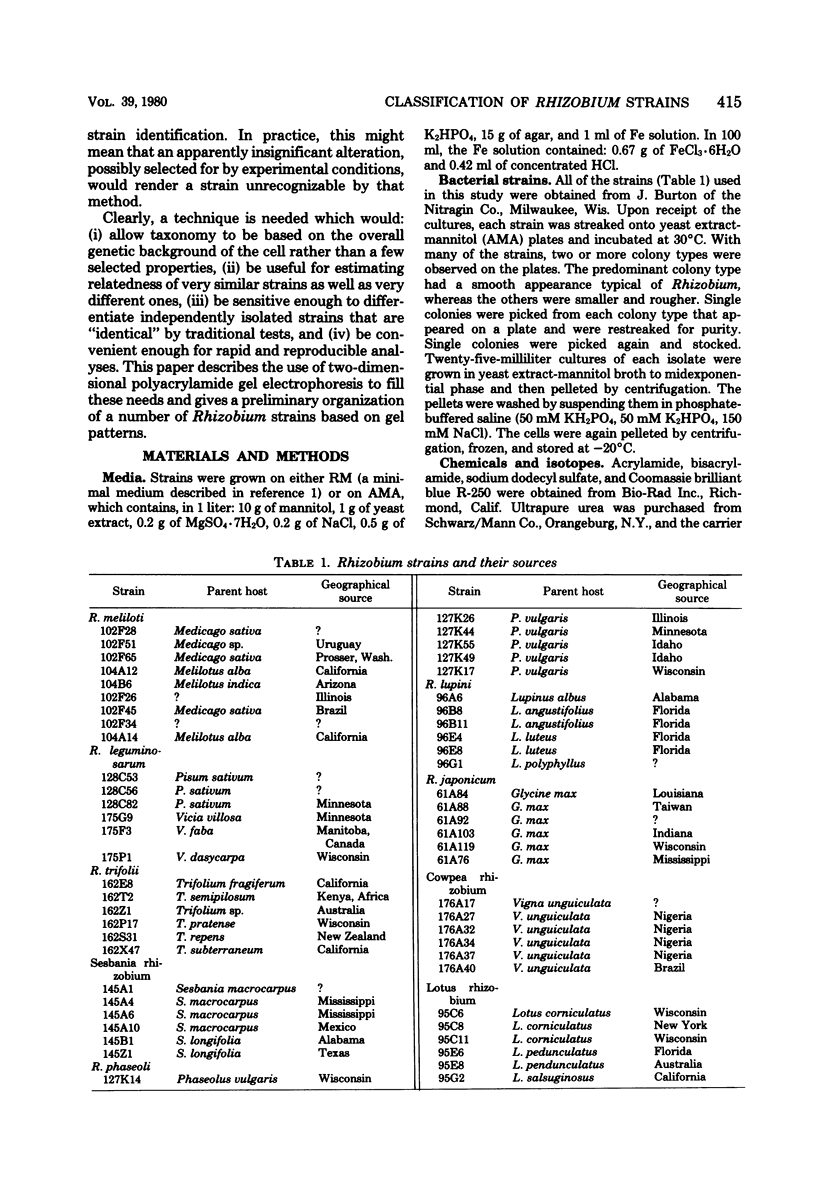
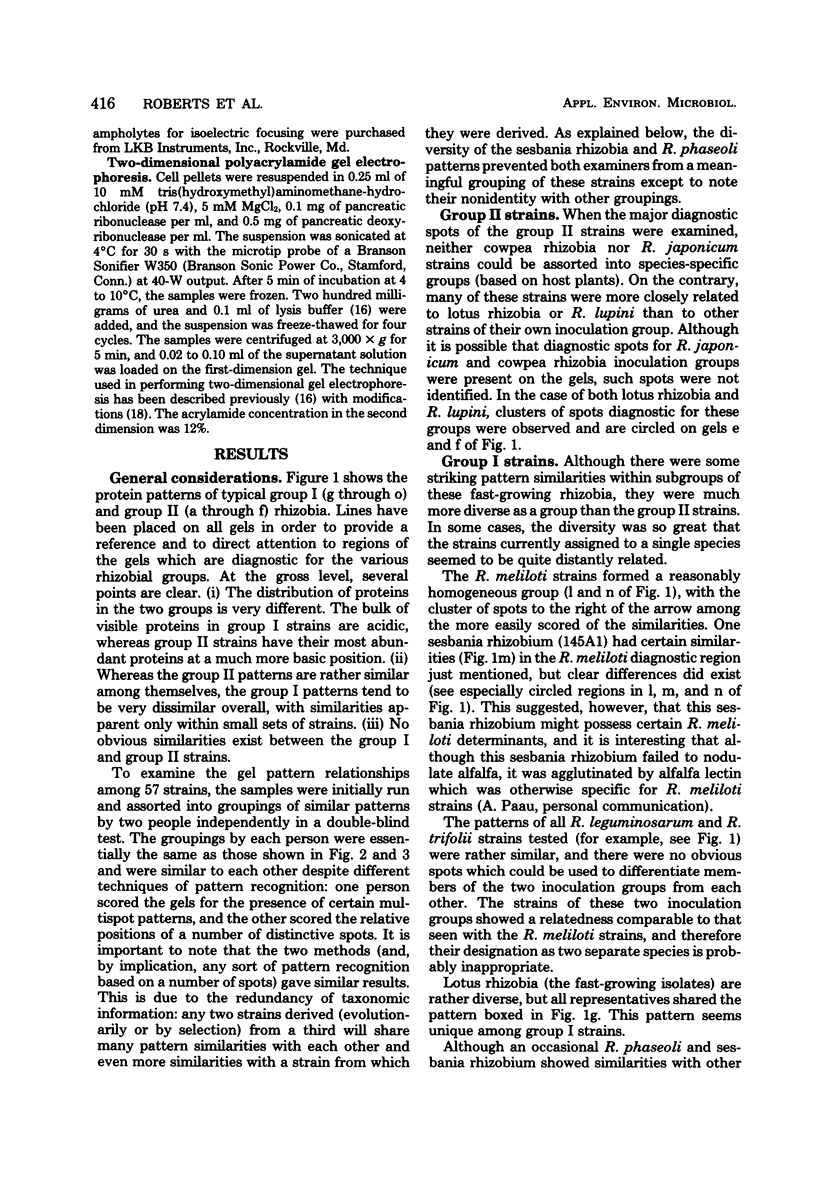
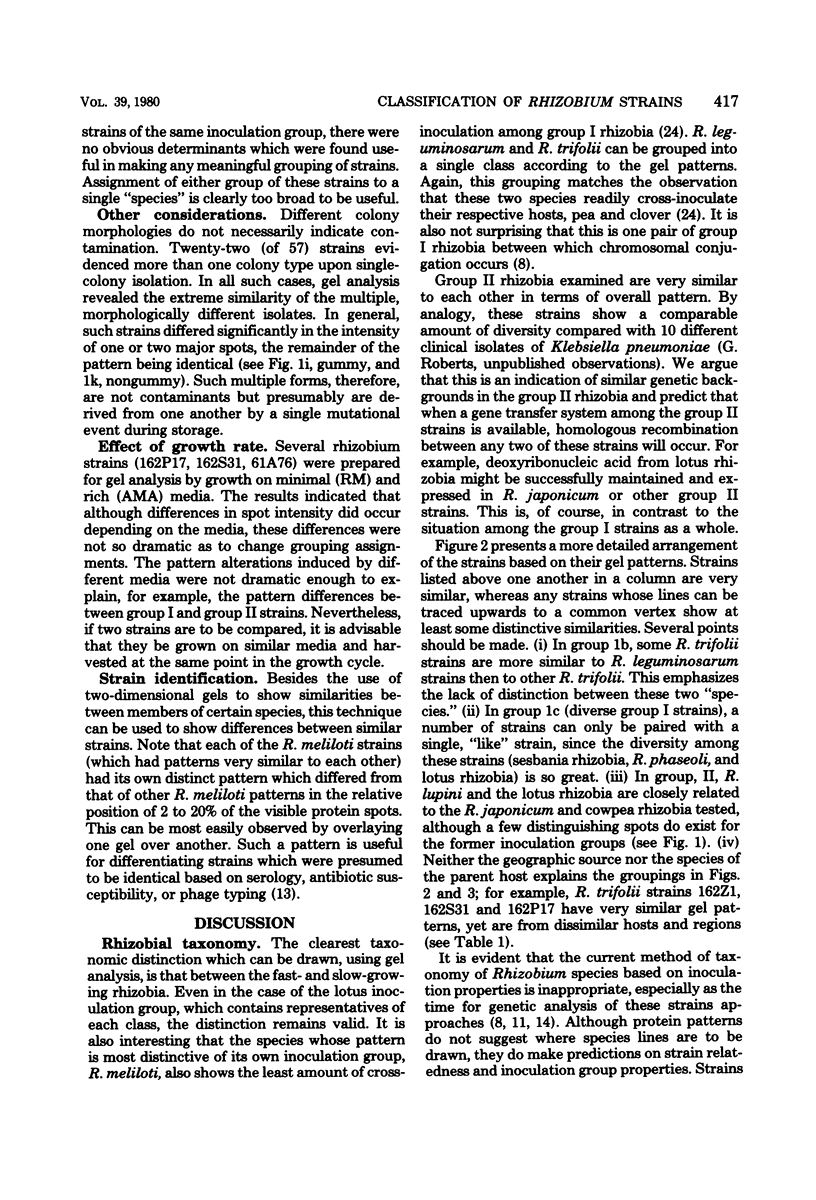
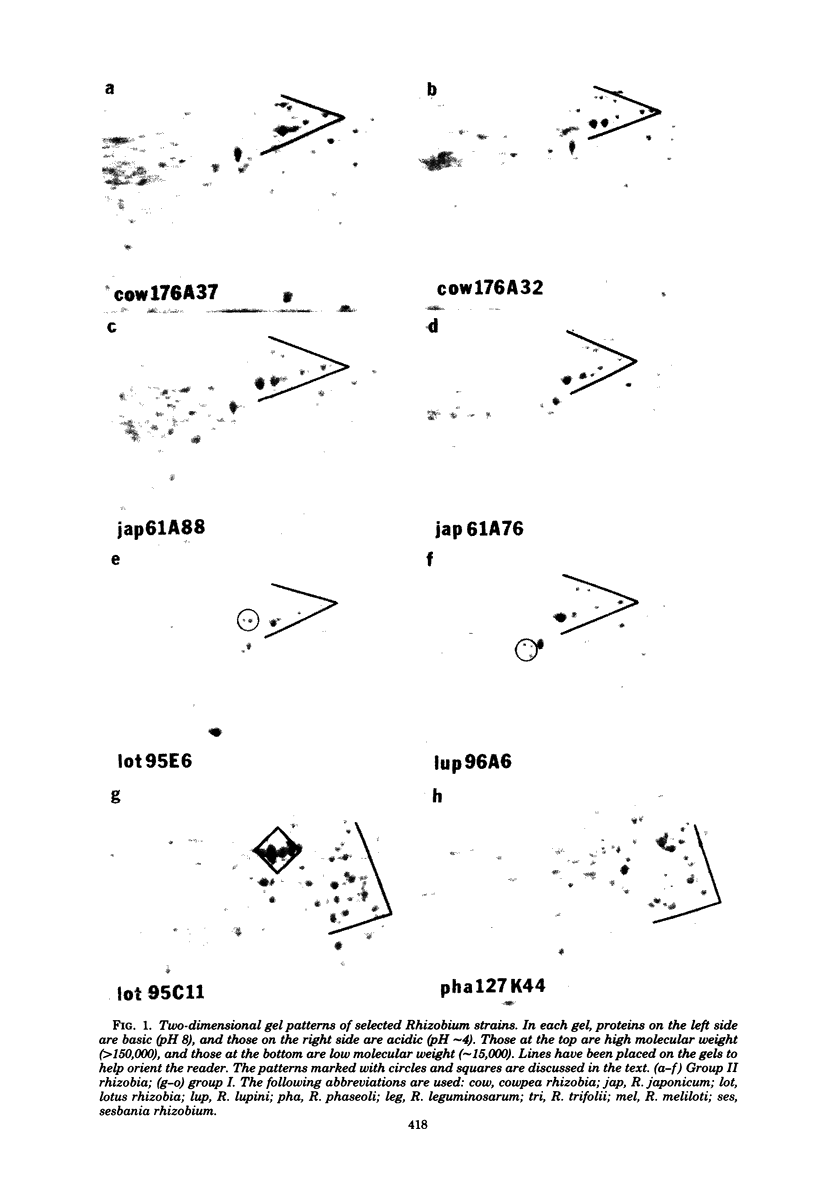
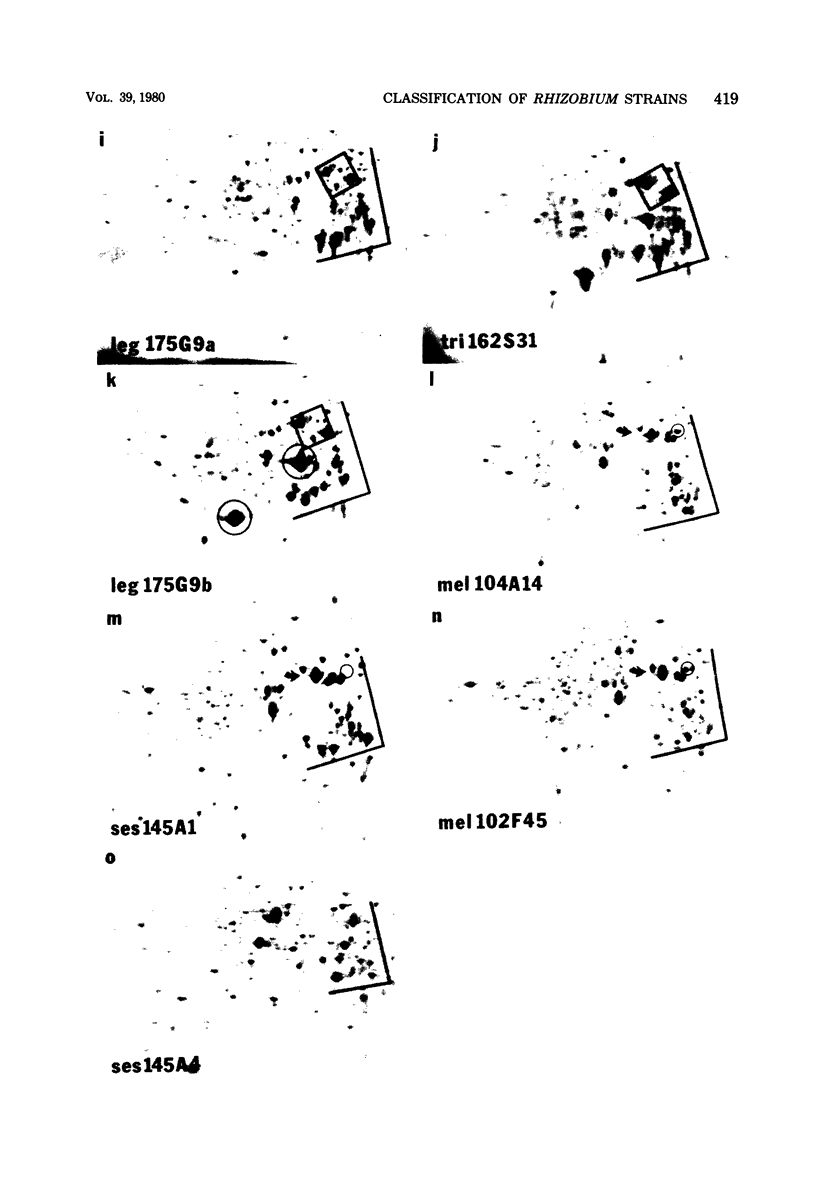
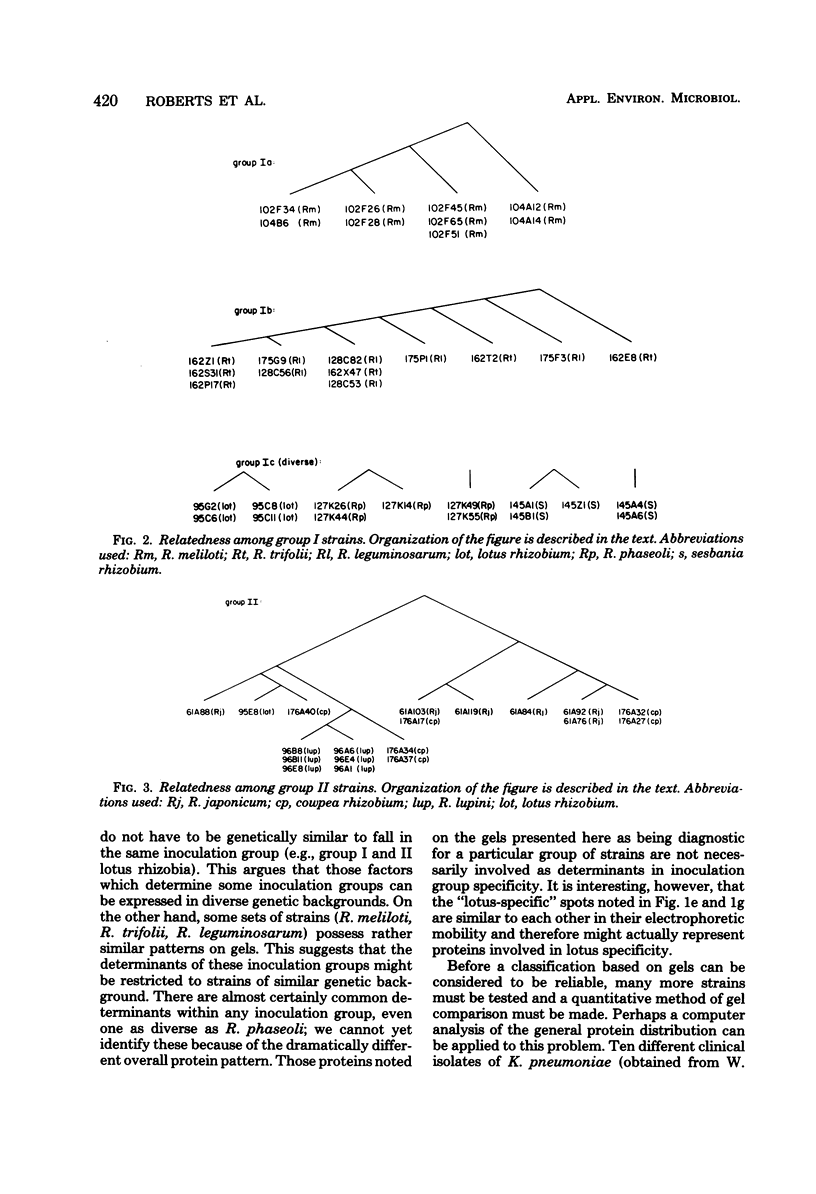
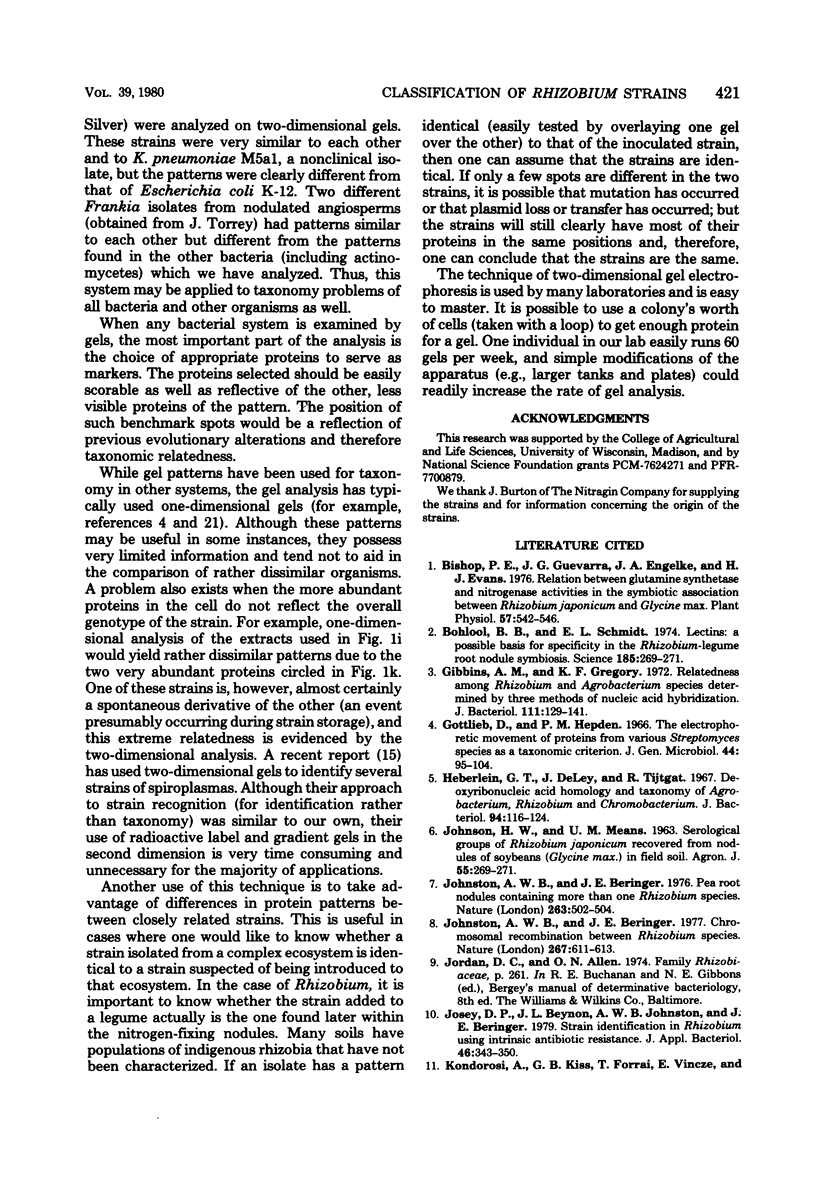
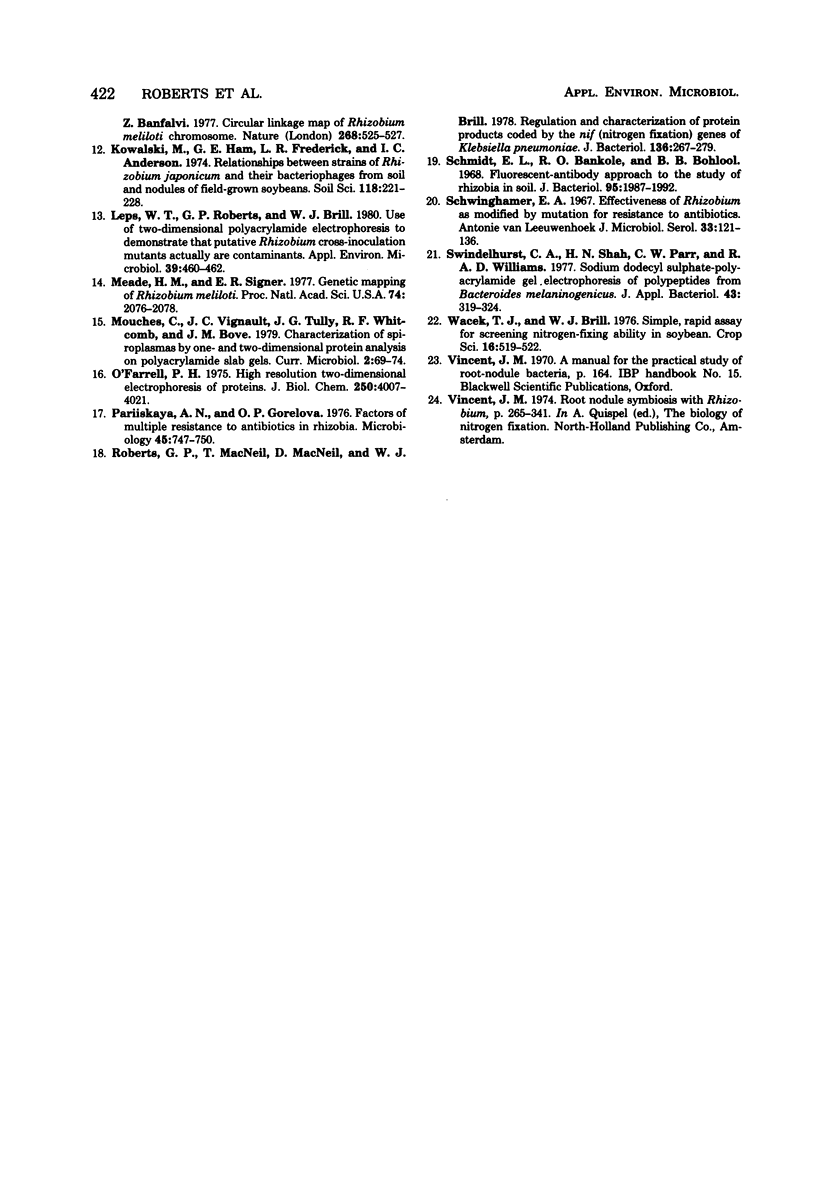
Images in this article
Selected References
These references are in PubMed. This may not be the complete list of references from this article.
- Bishop P. E., Guevara J. G., Engelke J. A., Evans H. J. Relation between Glutamine Synthetase and Nitrogenase Activities in the Symbiotic Association between Rhizobium japonicum and Glycine max. Plant Physiol. 1976 Apr;57(4):542–546. doi: 10.1104/pp.57.4.542. [DOI] [PMC free article] [PubMed] [Google Scholar]
- Bohlool B. B., Schmidt E. L. Lectins: a possible basis for specificity in the Rhizobium--legume root nodule symbiosis. Science. 1974 Jul 19;185(4147):269–271. doi: 10.1126/science.185.4147.269. [DOI] [PubMed] [Google Scholar]
- Gibbins A. M., Gregory K. F. Relatedness among Rhizobium and Agrobacterium species determined by three methods of nucleic acid hybridization. J Bacteriol. 1972 Jul;111(1):129–141. doi: 10.1128/jb.111.1.129-141.1972. [DOI] [PMC free article] [PubMed] [Google Scholar]
- Gottlieb D., Hepden P. M. The electrophoretic movement of proteins from various Streptomyces species as a taxonomic criterion. J Gen Microbiol. 1966 Jul;44(1):95–104. doi: 10.1099/00221287-44-1-95. [DOI] [PubMed] [Google Scholar]
- Heberlein G. T., De Ley J., Tijtgat R. Deoxyribonucleic acid homology and taxonomy of Agrobacterium, Rhizobium, and Chromobacterium. J Bacteriol. 1967 Jul;94(1):116–124. doi: 10.1128/jb.94.1.116-124.1967. [DOI] [PMC free article] [PubMed] [Google Scholar]
- Leps W. T., Roberts G. P., Brill W. J. Use of Two-Dimensional Polyacrylamide Electrophoresis to Demonstrate that Putative Rhizobium Cross-Inoculation Mutants Actually Are Contaminants. Appl Environ Microbiol. 1980 Feb;39(2):460–462. doi: 10.1128/aem.39.2.460-462.1980. [DOI] [PMC free article] [PubMed] [Google Scholar]
- Meade H. M., Signer E. R. Genetic mapping of Rhizobium meliloti. Proc Natl Acad Sci U S A. 1977 May;74(5):2076–2078. doi: 10.1073/pnas.74.5.2076. [DOI] [PMC free article] [PubMed] [Google Scholar]
- O'Farrell P. H. High resolution two-dimensional electrophoresis of proteins. J Biol Chem. 1975 May 25;250(10):4007–4021. [PMC free article] [PubMed] [Google Scholar]
- Roberts G. P., MacNeil T., MacNeil D., Brill W. J. Regulation and characterization of protein products coded by the nif (nitrogen fixation) genes of Klebsiella pneumoniae. J Bacteriol. 1978 Oct;136(1):267–279. doi: 10.1128/jb.136.1.267-279.1978. [DOI] [PMC free article] [PubMed] [Google Scholar]
- Schmidt E. L., Bakole R. O., Bohlool B. B. Fluorescent-antibody approach to study of rhizobia in soil. J Bacteriol. 1968 Jun;95(6):1987–1992. doi: 10.1128/jb.95.6.1987-1992.1968. [DOI] [PMC free article] [PubMed] [Google Scholar]
- Schwinghamer E. A. Effectiveness of Rhizobium as modified by mutation for resistance to antibiotics. Antonie Van Leeuwenhoek. 1967;33(2):121–136. doi: 10.1007/BF02045542. [DOI] [PubMed] [Google Scholar]
- Swindlehurst C. A., Shah H. N., Parr C. W., Williams R. A. Sodium dodecyl sulphate-polyacrylamide gel electrophoresis of polypeptides from Bacteroides melaninogenicus. J Appl Bacteriol. 1977 Oct;43(2):319–324. doi: 10.1111/j.1365-2672.1977.tb00757.x. [DOI] [PubMed] [Google Scholar]




